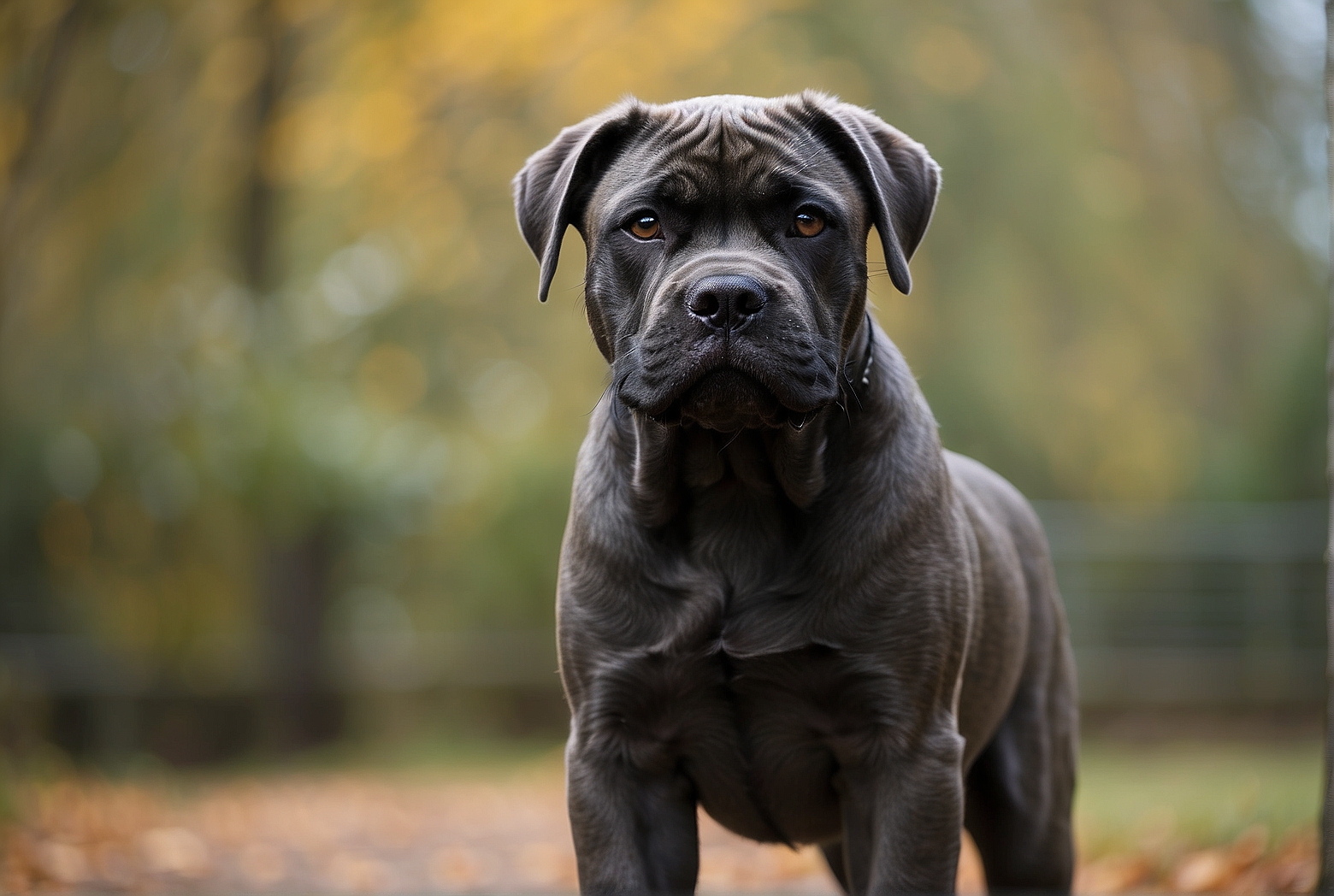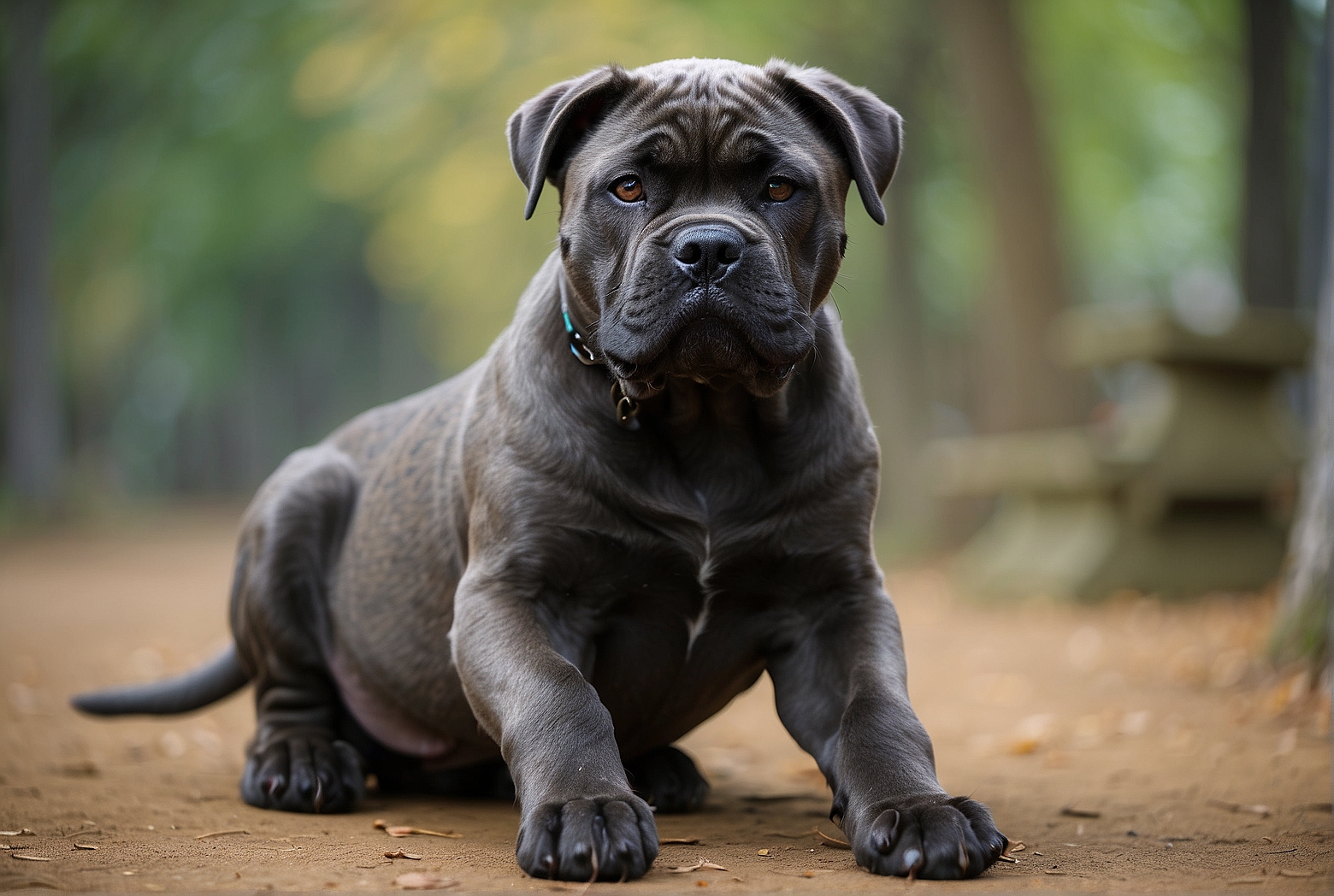Are you a proud owner of a Cane Corso who is dealing with aggression issues? If so, fret not! In this article, we will provide you with valuable tips on how to train your beloved companion to be non-aggressive. From understanding the root causes of aggression to implementing effective training techniques, we’ve got you covered. By the end of this article, you’ll be equipped with the knowledge to help your Cane Corso become a friendly and well-behaved member of your family. So, let’s get started on this rewarding journey together!
Understanding the Cane Corso Breed
The Cane Corso is a magnificent and powerful breed that has gained popularity for its loyalty, intelligence, and protective nature. To ensure a well-rounded and non-aggressive Cane Corso, it is essential to have a comprehensive understanding of their characteristics and the common causes of aggression in this breed. By familiarizing yourself with their traits and potential triggers, you will be better equipped to proactively address and prevent any aggression issues that may arise.
Characteristics of a Cane Corso
Cane Corsos are known to be confident, assertive, and highly trainable. They have a strong instinct to protect their loved ones, which can sometimes manifest as aggression if not properly managed. Understanding their protective nature and inherent tendencies will allow you to tailor your training and socialization techniques to meet their specific needs.
Common Causes of Aggression in Cane Corsos
Aggression in Cane Corsos can be caused by various factors, including fear, lack of socialization, improper training, health issues, and genetic predispositions. It is crucial to identify the underlying cause of aggression in order to implement appropriate management and training strategies. By addressing these triggers, you can help your Cane Corso become a well-mannered and non-aggressive companion.
Early Socialization
Early socialization plays a vital role in shaping a Cane Corso’s behavior and temperament. By exposing them to positive experiences with people and other animals during their formative months, you can lay the foundation for a well-socialized and non-aggressive adult dog.
Importance of Socializing a Cane Corso
Socialization is key to preventing aggression in Cane Corsos. It helps them become comfortable and confident in various social settings, reducing the likelihood of fear-based aggression. Introducing your Cane Corso to different people, animals, environments, and situations will help them develop a well-rounded and non-aggressive behavior.

Positive Experiences with People
It is crucial to expose your Cane Corso to a diverse range of individuals, including men, women, children, and strangers. Encourage positive interactions by rewarding good behavior and providing plenty of treats and praise. This will help them associate people with positive experiences, promoting a friendly and non-aggressive attitude towards everyone they encounter.
Positive Experiences with Other Animals
Cane Corsos can sometimes display aggression towards other animals, particularly dogs of the same sex. Early socialization with a variety of animals, coupled with positive reinforcement, can help promote harmonious interactions and prevent aggressive tendencies. By gradually exposing your Cane Corso to other animals in controlled environments, you can teach them appropriate behaviors and minimize the risk of aggression.
Consistent Training Methods
Consistency in training methods is paramount when working with a Cane Corso. These intelligent dogs thrive on clear communication and respond well to positive reinforcement techniques. By establishing a consistent and rewarding training routine, you can help shape their behavior and prevent any aggressive tendencies from developing.
Positive Reinforcement
Positive reinforcement involves rewarding desired behaviors with treats, praise, and affection. This approach allows you to focus on what your Cane Corso does right, reinforcing positive behaviors and discouraging negative ones. By using positive reinforcement techniques, you can motivate your Cane Corso to engage in non-aggressive and desirable behaviors.
Clear and Firm Commands
Cane Corsos respond well to clear and firm commands. Avoid ambiguity in your instructions and use a confident tone of voice to establish yourself as the leader. By giving clear commands, you can effectively communicate your expectations and minimize any confusion that may lead to aggression.
Consistency in Training Sessions
Consistency is key when training a Cane Corso. Set aside dedicated training sessions, keeping them short and focused. Regularly reinforce the training commands and maintain a consistent approach throughout your interactions. By providing consistent training, you can establish a predictable routine that will help your Cane Corso understand boundaries and reduce the likelihood of aggressive behavior.

Avoiding Harsh Punishments
Harsh punishments can lead to fear and aggression in Cane Corsos, undermining the foundation of trust and respect you are building with them. Instead of resorting to punishment, focus on positive reinforcement and redirecting their behavior. Teach them the appropriate behaviors through consistent training, promoting a non-aggressive and cooperative attitude.
Establishing Leadership
Establishing yourself as the pack leader is essential in managing and preventing aggression in Cane Corsos. By assuming a leadership role and setting clear rules and boundaries, you can create a stable and harmonious environment for your canine companion.
Being the Pack Leader
Cane Corsos thrive in a structured environment with a clear hierarchy. Being the pack leader means establishing yourself as the decision-maker and ensuring your Cane Corso understands their place in the family. By assuming this role, you provide your dog with a sense of security and reduce the likelihood of them resorting to aggression.
Setting Rules and Boundaries
Establishing rules and boundaries helps your Cane Corso understand what behaviors are acceptable and what is not. Consistently reinforce these rules through training and positive reinforcement techniques. When your Cane Corso knows their boundaries, they feel secure and are less likely to display aggressive behaviors.
Consistency in Enforcing Rules
Consistency is key when it comes to enforcing rules with a Cane Corso. Ensure that all family members and anyone interacting with your dog are consistent in their approach. By reinforcing the rules consistently, you create a predictable and stable environment, reducing the chances of aggression due to confusion.
Teaching Basic Commands
Teaching your Cane Corso basic commands such as sit, stay, and leave it is crucial for establishing control and managing their behavior. By teaching these commands and consistently reinforcing them, you provide a framework for communication and establish your authority as the pack leader. Basic commands also promote mental stimulation and engagement, reducing the likelihood of aggressive behaviors due to boredom.
Avoiding Triggers and High-Stress Situations
Identifying aggression triggers and avoiding high-stress situations is vital in managing and preventing aggression in Cane Corsos. By understanding what situations or stimuli may cause a negative response, you can proactively work towards desensitizing your dog and providing them with a stress-free environment.
Identifying Aggression Triggers
Observe your Cane Corso’s behavior and body language to identify potential triggers for aggression. These triggers may include certain sounds, specific objects, or particular situations. By recognizing these triggers, you can address them in a controlled manner, reducing the likelihood of aggressive reactions.
Gradual Exposure to Triggers
Once you have identified aggression triggers, it is crucial to gradually expose your Cane Corso to them in a controlled environment. Through systematic desensitization, you can help your dog become accustomed to these triggers and teach them desired behaviors instead of aggressive responses. Seek the guidance of a professional dog trainer or behaviorist to ensure a safe and effective desensitization process.
Properly Managing High-Stress Situations
In situations that may induce stress or anxiety in your Cane Corso, it is important to prioritize safety and take appropriate measures to manage their reactions. This may involve removing them from the stressful environment, providing a safe space, or redirecting their focus through positive reinforcement techniques. Managing high-stress situations effectively can help prevent aggressive responses and promote a calm and non-aggressive demeanor in your Cane Corso.
Proper Exercise and Mental Stimulation
A well-exercised and mentally stimulated Cane Corso is less likely to display aggressive behaviors. Providing ample physical exercise and mental stimulation is essential to maintaining their well-being and preventing aggression.
Regular Physical Exercise
Cane Corsos are an active breed that requires regular physical exercise to release pent-up energy. Engage in daily activities such as walks, runs, or playing fetch to keep them physically fit and mentally stimulated. A tired Cane Corso is more likely to be calm and relaxed, reducing the risk of aggressive behaviors due to excess energy.
Mental Challenges and Puzzle Toys
In addition to physical exercise, mental stimulation is crucial for a non-aggressive Cane Corso. Engage their minds by providing puzzle toys, treat-dispensing toys, or engaging in interactive training sessions. Mental challenges keep your Cane Corso engaged and reduce boredom, which can contribute to aggressive behaviors.
Structured Playtime with Supervision
Supervised playtime with other dogs or family members can provide your Cane Corso with social interaction and mental stimulation. Ensure that the playtime is structured, with clear boundaries and positive reinforcement for appropriate behavior. By engaging in supervised playtime, you can promote positive social skills and prevent any aggressive tendencies.
Professional Training or Behaviorist Consultation
In some cases, professional intervention may be necessary to address and manage aggression in Cane Corsos effectively. Hiring a professional dog trainer or working with a certified animal behaviorist can provide expert guidance tailored to your dog’s specific needs.
Hiring a Professional Dog Trainer
A professional dog trainer can assist you in developing a training plan specifically designed to manage aggression in your Cane Corso. They have experience working with similar breeds and behavioral challenges, providing valuable insights and effective strategies. Collaborating with a professional can greatly enhance your efforts in training a non-aggressive Cane Corso.
Working with a Certified Animal Behaviorist
For more complex aggression issues, involving a certified animal behaviorist may be necessary. These specialists have in-depth knowledge of canine behavior and can conduct thorough assessments to identify the underlying causes of aggression. Through behavior modification techniques and a tailored management plan, they can help address and manage aggression in your Cane Corso effectively.
Positive Exposure to Different Environments
A well-socialized and non-aggressive Cane Corso should be comfortable in various settings. Gradually exposing your dog to different environments, while utilizing positive reinforcement, can help them develop confidence and reduce the likelihood of aggressive behavior.
Gradual Exposure to Different Settings
Introduce your Cane Corso to different environments one step at a time. Start with quieter and less stimulating places, gradually increasing the level of exposure. Each positive experience in a new setting reinforces their confidence and reduces fear-based aggression. Ensure you have control over the environment, and be mindful of your Cane Corso’s comfort and stress levels throughout the process.
Positive Reinforcement in New Environments
When introducing your Cane Corso to new environments, reinforce positive behaviors with rewards and praise. By associating these new settings with positive experiences, you can help them feel at ease and non-aggressive in unfamiliar surroundings. Consistent positive reinforcement in new environments is key to promoting a well-rounded and non-aggressive Cane Corso.
Routine Vet Visits and Check-ups
Regular vet visits and check-ups are essential for maintaining your Cane Corso’s overall health and well-being. These visits can also help identify and address any medical issues that may contribute to aggressive behavior.
Regular Health Check-ups
Ensure your Cane Corso receives regular health check-ups to monitor their overall well-being. Routine examinations can help identify any underlying health concerns that may manifest as aggression or contribute to behavioral issues. By addressing these medical issues promptly, you can minimize the risk of aggressive behavior due to discomfort or pain.
Identifying and Treating Any Medical Issues
If your Cane Corso displays sudden changes in behavior or aggression, consult your veterinarian to rule out any underlying medical conditions. Certain health issues, such as thyroid imbalances or neurological disorders, can affect a dog’s behavior. By addressing these medical issues, you can help your Cane Corso maintain a non-aggressive temperament.
Preventive Measures Against Aggression
Vaccinations, flea and tick prevention, and regular parasite control are important preventive measures to keep your Cane Corso healthy and reduce their risk of aggression. Providing proper healthcare not only ensures their physical well-being but also promotes a stable and non-aggressive temperament.
Understanding and Managing Dominant Behavior
Cane Corsos can display dominant behaviors that, if not properly managed, may lead to aggression. Understanding how to recognize and appropriately address dominant behaviors is crucial for maintaining a non-aggressive Cane Corso.
Recognizing Dominant Behaviors
Dominant behaviors in Cane Corsos may include guarding possessions, territorial behavior, or challenging authority. Understanding the body language and vocal cues that indicate dominance can help you identify and address these behaviors proactively. With proper recognition, you can apply appropriate strategies to ensure dominance does not escalate into aggression.
Appropriate Handling and Corrections
When faced with dominant behaviors, it is essential to handle the situation appropriately. Maintain a calm and assertive demeanor, and assert your authority through consistent training and clear boundaries. Use correction techniques that are firm yet non-harsh, focusing on redirecting the dominant behavior towards more desirable actions.
Balancing Dominance and Submission
Balancing dominance and submission is essential to avoid power struggles and maintain a non-aggressive Cane Corso. While establishing yourself as the pack leader, it is equally important to provide opportunities for your dog to make choices and exercise their autonomy. By maintaining a healthy balance, you can foster a cooperative and non-aggressive relationship with your Cane Corso.
In conclusion, training a Cane Corso to be non-aggressive requires a comprehensive approach that includes early socialization, consistent training methods, establishing leadership, avoiding triggers, providing proper exercise, seeking professional intervention when necessary, exposure to different environments, routine vet visits, and understanding and managing dominant behavior. By following these guidelines, you can raise a well-adjusted and non-aggressive Cane Corso that brings joy and companionship to your life. Remember, a friendly and non-aggressive Cane Corso is a reflection of the effort and dedication you invest in their training and well-being.
